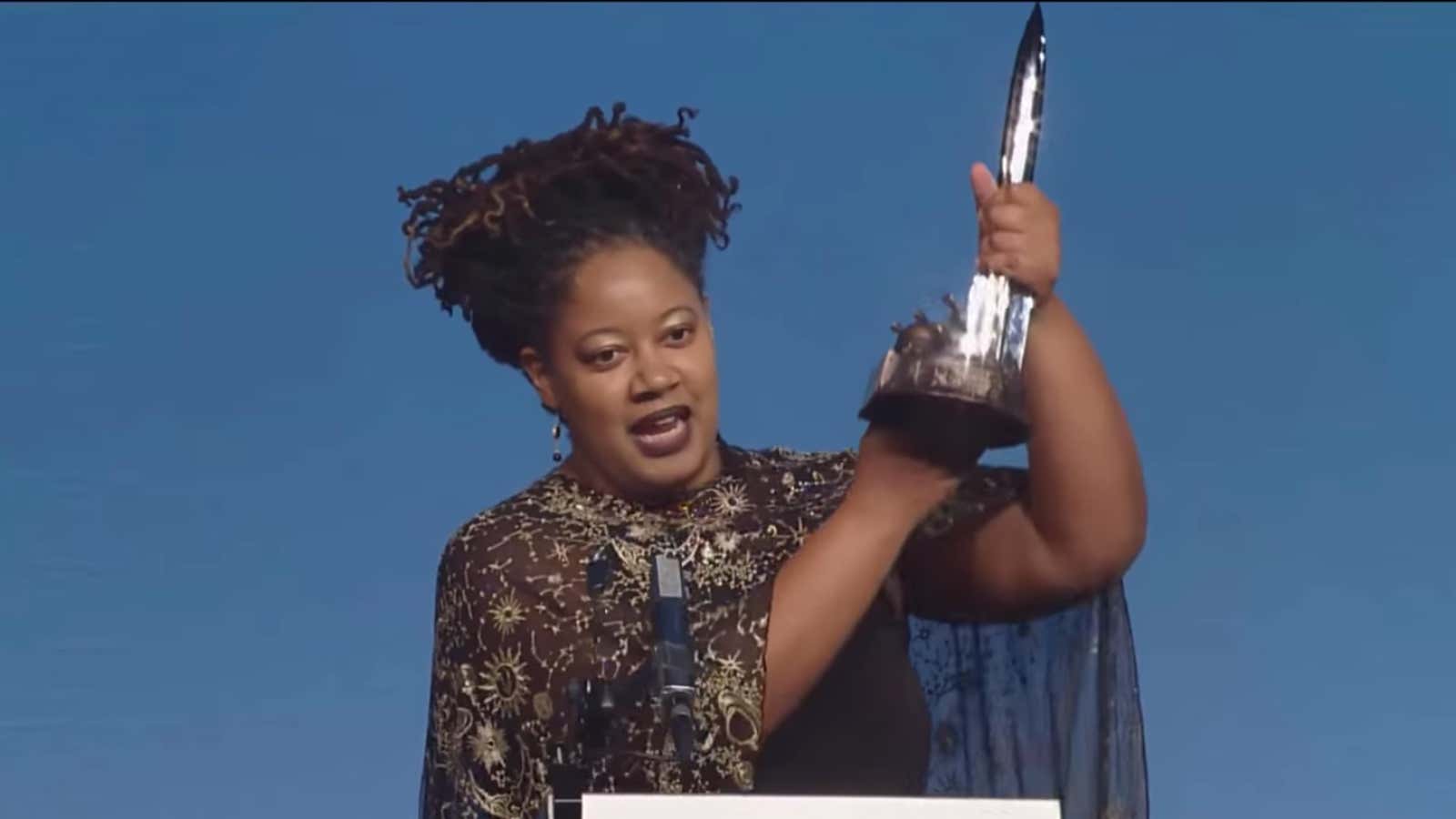Three years ago, N.K. Jemisin was the first black writer to win one of science fiction’s most prestigious prizes, the Hugo for best novel. Then last year, she won it again. This year, yet again, she won the top Hugo award, for The Stone Sky, the last in her Broken Earth fantasy trilogy.
And on Sunday evening, accepting the award, Jemisin had a few choice words for her skeptics.
“This is the year in which I get to smile at all of those naysayers: every single mediocre, insecure wannabe who fixes their mouth to suggest that I do not belong on this stage, that people like me cannot possibly have earned such an honor, and that when they win it’s meritocracy, but when we win it’s identity politics,” she said. “I get to smile at those people and lift a massive shining rocket-shaped finger in their direction.”
She held up her Hugo award, a trophy in the shape of a rocket, to resounding applause.
Jemisin’s books often deal with structural oppression and, in her words, “what it takes to live let alone and thrive in a world that seems determined to break you, a world of people who constantly question your competence, your relevance, your very existence.”
The Hugos, sometimes described as the Oscars for science fiction and fantasy, began in 1953 with author Isaac Asimov as the host. Since then giants of the genres, including Philip K. Dick, Ursula K. Le Guin, and Neil Gaiman, have won the top prize.
But in recent years the Hugo awards have been plagued by ideological in-fighting. Conservative writers and fans, believing that the awards are undeservingly biased toward books about feminism and diversity, have campaigned to hijack the awards with coordinated voting for books they’ve approved.
This year’s results, from around 2,800 votes, continue to honor women despite the efforts of these groups. In addition to Jemisin’s winning streak, a slew of other women won awards, including Le Guin, posthumously, the writer Rebecca Roanhorse, and the Patti Jenkins-directed film Wonder Woman.
“I know that I am here on this stage accepting this award for pretty much the same reason as every previous best novel winner,” Jemisin said in her acceptance speech. “Because I worked my ass off.”
